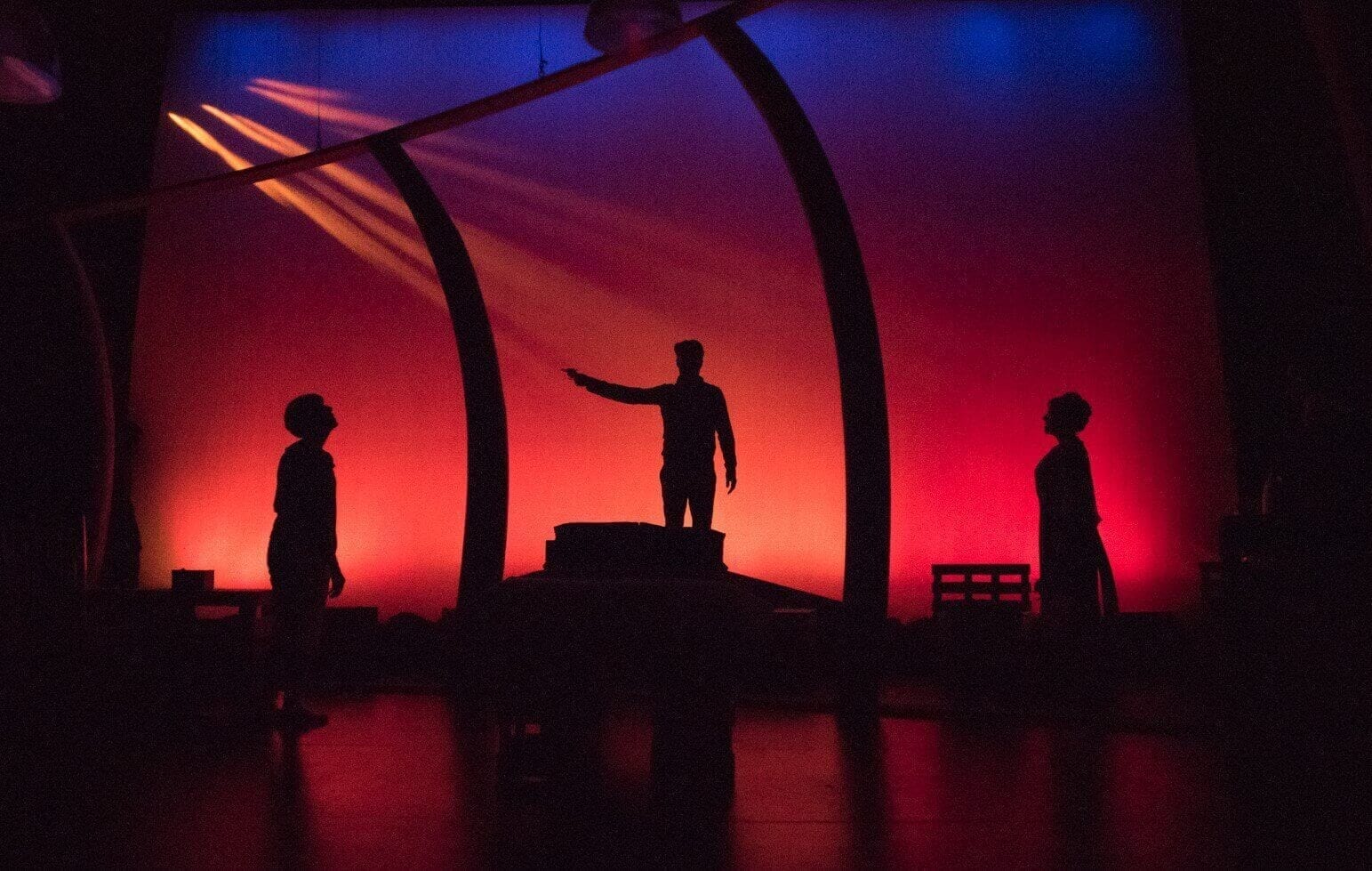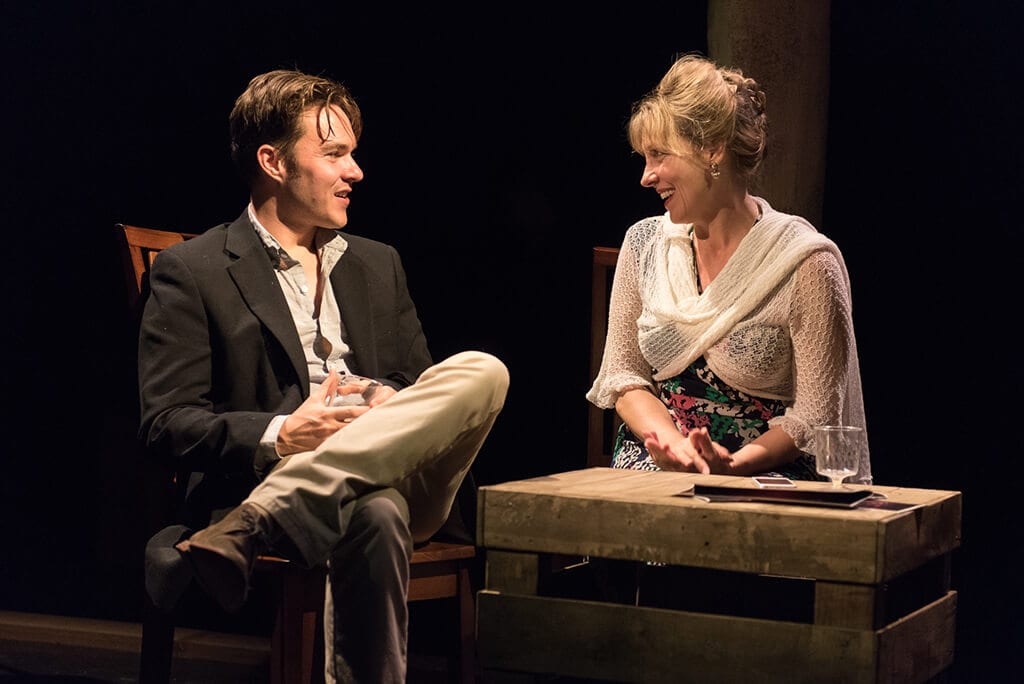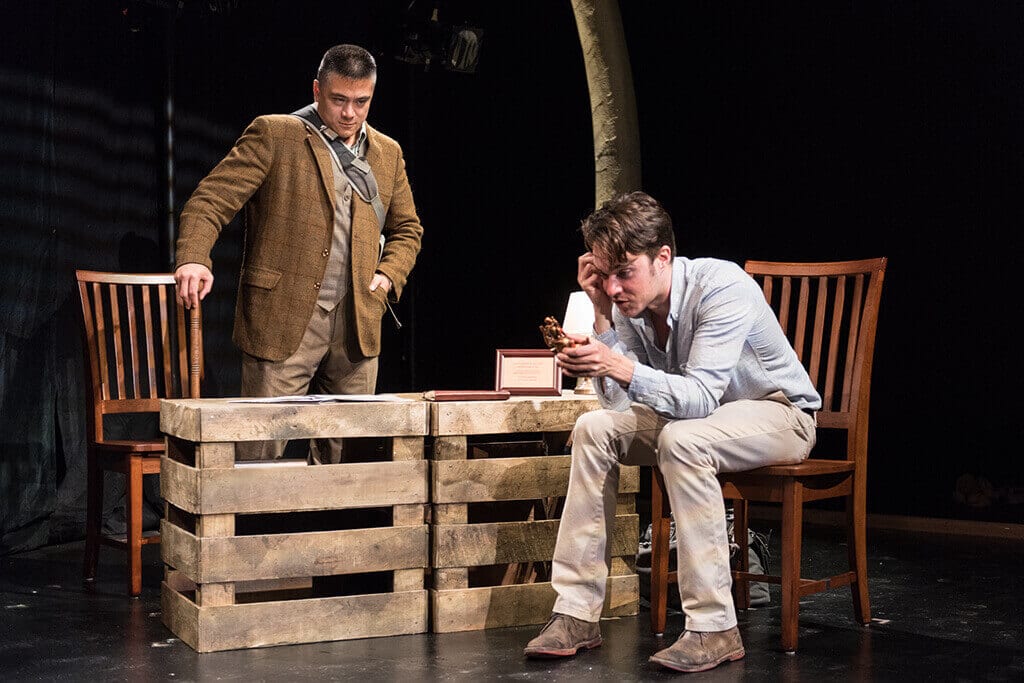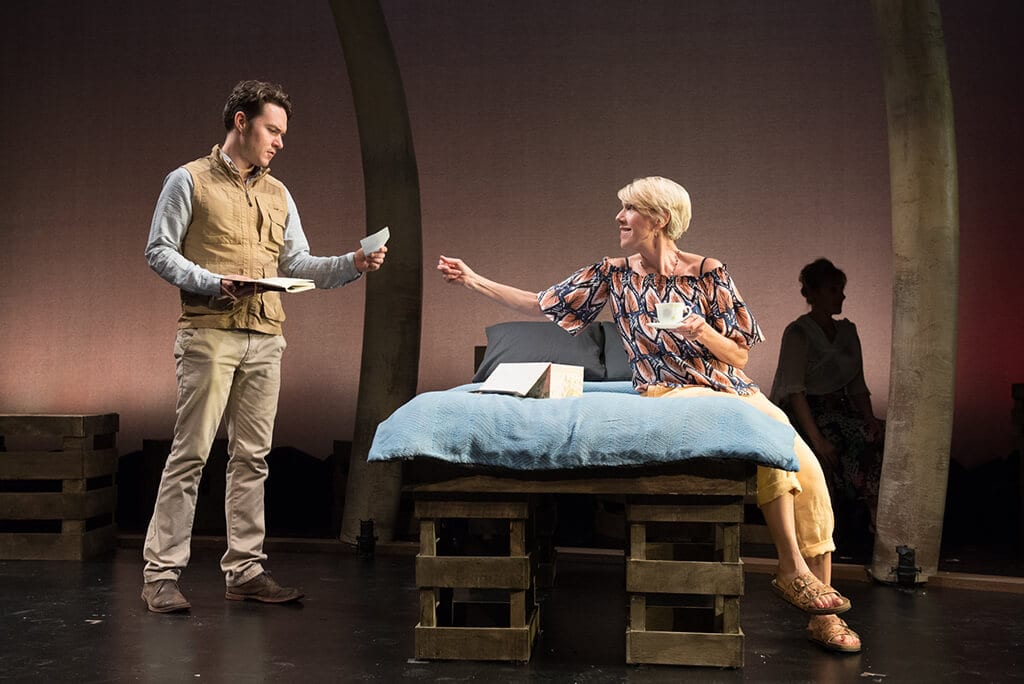The play opens in Uganda somewhere in the memory of David. He’s the scion of a great, wealthy family with its full share of personal losses and a shortage, we gather, of emotional resources to deal with them. The family business, or his part in it anyway, is philanthropy, specifically funding the research and support of African elephants, ravaged physically and now emotionally by villainous, indifferent poachers operating on a nearly genocidal scale. This play is a deeply earnest exploration of crimes and grief and psychic collateral damage. Drew Ledbetter gives a tightly wrapped and interestingly layered performance as David, genteelly wound to the point of unraveling under the strain of unresolved family events too sensitive to touch.
Each individual scene is a clear, well-wrought bubble of lived experience, but the play consciously tumbles the chronological order. It has that Stoppard-like effect, as in The Coast of Utopia and Rock and Roll, where we feel we’re overhearing densely argued moments without ever being fully anchored in the storytelling. If you don’t like feeling that you don’t know which way is up, at least for a while, well, we eventually realize that David doesn’t either. He’s experiencing some kind of cognitive dissolution, so we’re metaphorically put in the same position.
The set is abstract and strikingly lit, with framing shapes evoking mammoth tusks; although it’s oddly reliant on a centrally placed bed throughout, a functional if visually weak choice. We are given an appealing rhythm of scenes and monologues including one inventive “slide show” given by elephant sanctuary director Kasem (Ariel Estrada) about the horrendous plight of African elephants today. We don’t see the slides, but we imagine we do, vividly.
Unfortunately the rather long opening scene is essentially undramatic, one character interviewing another, which lowers expectations for what is to come. Victoria Vance plays the Afrikaaner host Olivia with such detachment that it’s frankly hard to stay tuned in to the information she conveys. The scene culminates in an impulsive kiss with no foreshadowing.
Lisa Bostnar is affecting as Marie, the second-time-around love interest of David’s father, breathing life into both some of the weaker material (e.g. a too familiar kind of scene asking a dead former spouse’s blessing) and some of the strongest, where the tensions in her relationship to David come to a head.
We can’t say the play literally puts us in David’s perspective, like, say, the way The Father now famously does with Frank Langella’s Alzheimer-impaired character. We experience some scenes where David isn’t present at all, especially in a B plot between a free-spirited violinist he had trysted with (Claire Warden) and her new partner, an open-hearted old friend of David’s, played appealingly by David Prioleau. And there are private monologues by other characters—at a graveside, in an AA meeting.
So it’s less simplistic you might say, or less clear, or more ambiguous and artistic. I can’t say the totality of the effect is moving exactly. Some of the most touching parts were actually what we learn about the besieged, intelligent elephants and their manifestations of memory and grief. On the subject of humans, it’s smart, engaging mostly, and ultimately an uncomfortable puzzle.





